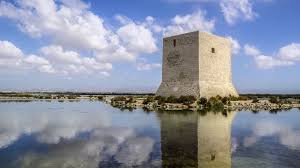
Eleventh International Workshop on
Practical Applications of Stochastic Modelling
PASM'22
23rd September 2022
Santa Pola, Alicante, Spain
(collocated with EPEW 2022)
Scope of Workshop
We encourage papers which apply current well-developed formalisms (stochastic Petri nets, stochastic process algebras, layered queueing networks, etc) to real-world case-studies. These studies might be of traditional web-service, Grid or computer architectures but also we strongly encourage studies from inter-disciplinary collaborations, such as biological and physical systems.
The common link is to see how researchers from diverse fields have overcome the problem of modelling large concurrent and stochastic communicating systems to obtain the particular style of stochastic metric that is important to their field.
Successful contributions may have demonstrated some novel theoretic advance to model their system or will have been diligent in constructing a detailed and realistic stochastic or probabilistic model and carried the modelling through to the analysis phase. Extra credit will be given for models which are backed up by experiment or simulation.
The aim is to end up with a collection of papers which could be used as outstanding examples of modelling practice in the field of stochastic modelling and exhibit all phases of the modelling lifecycle.
Some suggested topics on which we would encourage submission, are listed below. This is by no means an exhaustive list and any paper in the general area of the conference scope would be warmly welcomed.
- Case-study analysis using stochastic paradigms and novel analytic
variations on those paradigms to enable better practical analysis, e.g.:
- stochastic process algebras
- stochastic Petri nets
- layered queueing networks
- stochastic automata networks
- queueing networks
- fluid stochastic Petri nets
- stochastic ambient calculus
- Specific interdisciplinary topics that we would be particularly interested
to hear from include application of systematic probabilistic or stochastic
analysis techniques to, for instance:
- biological/epidemiological models
- models of computer virus/worm infection
- spatial modelling of chemical/nuclear reactions
- decision making, planning and scheduling
- geophysical models of large dynamical systems: e.g. weather/ocean systems, lava flows
- Stochastic and probabilistic models from computing areas such as:
- data science
- power consumption/conservation
- computer security
- cloud computing
- distributed and fault-tolerant systems
- adhoc wireless communication systems
- embedded systems
- safety-critical systems
- cyber-physical systems
- smart cities
- performance analysis of massively parallel architectures
- Methods for the solution of practical large-scale problems, for instance:
- Parallel and distributed solution of Markov chains
- Performance analysis using GPU-accelerated architectures
- Fluid approximations
- Mean field analysis
- Stochastic simulation
- Product form solution
- MTBDD based methods
- State space reduction
Publication
The workshop proceedings will be published by Springer in Communications in Computer and Information Science (CCIS) as a revised post-proceedings volume, to appear after the workshop.
Instructions to authors
Electronic paper submission will be available through Easy Chair.
Papers should be original work of between 12 and 20 pages long, including figures and bibliography, and in single-column format. Submission is required in PDF format. Word files cannot be accepted. Instructions on how to format your paper are given here.
Accepted papers
Friday 23rd September
Session 1: 10.00-11.00 Session Chair: Nigel Thomas
- Gontzal Sagastabeitia, Josu Doncel and Nicolas Gast, To Confine or not to Confine: A Mean Field Game Analysis of the End of an Epidemic
- Pedro Juan Roig, Salvador Alcaraz, Katja Gilly, Cristina Bernad and Carlos Juiz, Data Center Organization and Optimization Strategy as a k-ary n-cube Topology
Session 2: 11.30-13.00 Session Chair Katja Gilly
- Ohud Almutairi and Nigel Thomas, Performance modelling of attack graphs
- Marco Gribaudo, Mauro Iacono, Daniele Manini and Michele Mastroianni, Analysis of the Battery Level in Complex Wireless Sensor Networks using a Two Time Scales Second Order Fluid Model
- David Enrique Sanchez Oliva and Charles Morisset, Towards Calculating the Resilience of a Urban Transport Network under Attack
Programme Committee
- Andrea Marin
- Jean-Michel Fourneau
- Charles Morisset
- Katja Gilly
- Matthew Forshaw
- Marco Gribaudo
- Mauro Iacono
- Carlos Juiz
- Joris Walraevens
- Samuel Kounev
- Sabina Rossi
- Enrico Vicario
- Andrea Vandin
- Markus Siegle
- Aad van Moorsel
- Miklos Telek
Workshop organisers
William Knottenbelt
Imperial College London
Nigel Thomas, Newcastle University Matthew Forshaw, Newcastle University